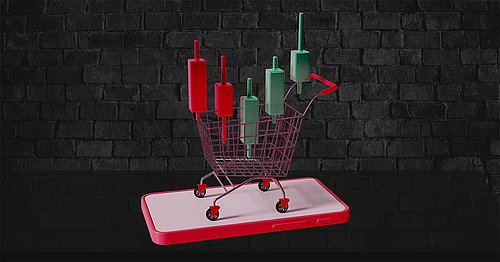Black Friday security: Top tips to keep your customers and your business safe online and in-store
In a world where fraud is a constant threat, safeguarding your customers' data and your business’s reputation has never been more vital.
Below we have a list of the essential strategies that will not only protect your customers but also elevate their shopping experience.
Be prepared from a security point of view so that you can focus on bringing your customers the best experience during this holiday season!
Black Friday 2024: tips for enhancing online and in-store security
Update all plugins and security tools
The first step in protecting both your business and your customers is to update all integrations, plugins, and security tools on your site. This is crucial for two main reasons.
Firstly, a properly updated site is a secure site. Regular updates help fix bugs and known vulnerabilities and exploits, safeguarding you against commonly used routes by hackers.
Additionally, a securely updated site performs better in terms of speed and user-friendly navigation, helping you create an improved buying experience that is likely to lead to increased conversions and sales. Speed leads to higher sales.
What better opportunity than Black Friday to implement these essential updates?
In particular, they should cover:
Ecommerce platform: Ensure its updated to the latest version, including all integrations, themes, and CMS security plugins for vulnerability monitoring. Also, remember to disable any unnecessary, outdated, or deprecated plugins and libraries.
Firewalls and protection devices: Update your firewall and test your DDoS protection by checking for injection paths and reviewing load capacity.
Monitoring alerts: Check that your alerts and monitors are up and running.
SSL certificates: Ensure your SSL certificates are valid to encrypt data transmitted between users' browsers and your server.
Implement two-factor authentication (2FA) by requiring users to undergo dual verification when accessing your site. This process combines a password or PIN with a code sent to their mobile phone, enhancing security and protecting sensitive personal data from hackers.
Next to the updates, review and implement additional measures to prevent unauthorized access:
Limit access roles: Restrict the roles of employees who have access to your site to minimize risk.
Use the principle of Least Privilege: Grant users the minimum access necessary to perform their daily tasks, reducing the potential impact of unauthorized access or misuse.
Review user accounts: Regularly remove inactive user accounts and those that haven’t logged in recently to maintain a secure environment.
Control access attempts: Limit the number of login attempts for both customers and staff.
Implement CAPTCHA: Introduce a CAPTCHA check (such as a simple image recognition test) to verify that users accessing your site are human and not bots.
Implement strong passwords: Encourage the use of strong passwords that consist of at least 12 characters, including a mix of uppercase and lowercase letters, numbers, and special characters. Passwords should not include easily identifiable personal information, such as names or birth dates, and must be unique—never reused across different accounts or systems. Provide simple guidelines during the account registration process to help customers create strong passwords.
Increase protection for credit card payments
When it comes to credit card payments, the foremost rule is to ensure full compliance with the PCI DSS (Payment Card Industry Data Security Standard). This set of guidelines is specifically created to secure payment cards and applies to all businesses that process card payments and store sensitive card data. To confirm your compliance with PCI DSS, it’s essential to complete the PCI SAQ (Self-Assessment Questionnaire).
While card payments should always be fast, secure, and frictionless, there are two key measures you can implement to protect credit card data for users buying on your ecommerce site during Black Friday:
Tokenization: This process securely stores your customers' credit card data as a unique code or “token.” If intercepted, the token is meaningless, preventing malicious actors from accessing card data and using it for fraudulent transactions.
3D Secure 2.2: By implementing 3D Secure 2.2, MultiSafepay’s merchants gain an extra layer of protection for their card transactions. This feature enhances security with a stronger yet seamless authentication process at checkout, which may include biometric verifications or SMS code confirmations. This significantly reduces the risk of unauthorized payments and boosts consumer trust in your online store. Furthermore, the authentication process occurs directly within the checkout, allowing customers to complete their payments without leaving your site, ultimately benefiting your conversion rates.
Partnering with an acquirer and processor like MultiSafepay facilitates direct communication with major credit card networks, ensuring that the entire verification and authentication process is handled smoothly within your checkout.
Reduce the risk of chargebacks
Chargebacks tend to increase during peak sales periods due to higher instances of fraud—where unauthorized transactions occur—or simply because a greater volume of purchases can lead to payment errors and customer dissatisfaction, resulting in more refund requests.
To mitigate the risk of chargebacks, consider partnering with a payment service provider that actively monitors transaction statuses and can respond promptly if a chargeback is initiated.
Additionally, make it easy for customers to reach out by providing clear communication channels. Enhance your customer service to ensure they receive all necessary information and assistance in case of any issues.
Perform frequent backups and activate recovery procedures
Regular backups and recovery procedures become even more crucial during Black Friday. During peak shopping seasons, your site's traffic may increase exponentially, making it more susceptible to malfunctions, fraud, and technical errors.
Regularly backing up your site allows you to easily restore a previous version, minimizing potential losses. Additionally, having recovery procedures in place helps reduce downtime, which can be detrimental to sales.
Importantly, backups and recovery procedures enhance your site’s security and protect your customers' personal data and payment details. Implementing a robust emergency management system not only safeguards your sales but also bolsters your reputation.
Perform daily reconciliation
Monitoring the correspondence between your account movements, issued invoices, expenses, and received payments is particularly critical during Black Friday. Daily reconciliation allows you to identify any anomalies in transactions, whether due to fraud attempts or simple errors. Additionally, running daily reconciliation during Black Friday not only provides a better up-to-date overview of your business but also offers real-time insights into the performance of your promotional campaigns.
Although reconciliation can be a complex process—often fraught with manual errors—you can simplify it by working with a payment provider that enables you to manage all your transaction and customer data in one place. This approach streamlines your accounting and reconciliation operations, saving you time and enhancing operational efficiency.
Enhance Your Inventory Management
To effectively manage the surge in demand from customers during Black Friday, it’s essential to implement strategic inventory management practices.
By accurately forecasting sales trends, you can ensure that your warehouse is stocked with the most sought-after items while minimizing excess inventory of less popular products.
Utilize real-time tracking systems to monitor stock levels and facilitate rapid replenishment. Additionally, maintaining a flexible supply chain will help ensure timely deliveries, ultimately enhancing customer satisfaction.
Protect your payment terminals
POS devices handle transactions just like your online store and therefore they need to be secure and are a target for fraud.
Given the sensitive data they handle and their advanced technological features, POS payment terminals are valuable assets and should be treated as such when implementing security measures for Black Friday. Here are some essential steps to prevent them from falling into the wrong hands:
Constant updating: Just like the plugins and integrations of your ecommerce site, POS terminals require regular updates.
Restricted access: Ensure that only authorized and trusted personnel have access to the POS terminals. This includes training staff to never leave mobile devices unattended.
Connect to secure networks: Set up a dedicated secure network exclusively for your payment terminals. Implement encryption protocols to safeguard transmitted data and use network monitoring systems to detect any suspicious activity. Access to this network should also be limited to trusted personnel only.
Install surveillance systems at your store
Installing a comprehensive surveillance and security system—complete with cameras and alarms—is essential for any retail store, not just during peak periods like Black Friday. Ensuring the safety of customers, staff, and goods must be a priority 24/7 throughout the year.
Cameras should be strategically placed near all entrances and in the warehouse, while doors and windows should be secured with an effective alarm system.
Modern surveillance tools offer more than just high-resolution images. Look for systems that integrate with other security measures and allow for remote monitoring via mobile devices. Advanced features, such as artificial intelligence, can analyze video footage in real time to detect suspicious activities.
Finally, it's crucial to ensure that video recordings are properly archived and readily accessible in the event of theft or other incidents.
Train your staff on security measures in-store
During busy periods like Black Friday, sales events, or the holiday season, it's crucial to implement robust security measures at your physical point of sale. However, especially in larger stores, it’s impossible to monitor every movement alone. Regularly training your staff is essential to ensure the safety of both customers and your space. Your team should be equipped to:
Prevent theft: Train staff to detect suspicious behavior to proactively prevent theft.
Identify tampering: Ensure they can promptly recognize if a POS terminal has been compromised by skimming devices, helping to prevent credit card cloning.
Perform daily reconciliation: Inform them about the importance of daily reconciliation to catch discrepancies early.
Secure cash: Instruct them on proper procedures for securing cash at the end of each workday.
Monitor inventory: Encourage consistent use of stock and inventory monitoring systems so any shortages are quickly identified.
Manage lighting: Especially during evening hours, ensure that the lighting inside and outside the store is adequate for safety.
Activate alarms: Remind them to activate the alarm and securely lock all entrances at the end of the day and consider additional night-time protections like armored blinds.
By empowering your staff with the knowledge and skills to handle these responsibilities, you can significantly enhance the security of your store.
Why tighten security measures during Black Friday?
There are countless reasons to prioritize security during Black Friday.
Here are the main benefits you’ll gain:
Process optimization: An up-to-date and secure system ensures a smoother, faster, and more enjoyable purchase experience for your customers.
Avoiding fraud and data breaches: Preventing these incidents is crucial, as they can have disastrous consequences for both you and your customers, negatively impacting your business in terms of costs and reputation.
Saving time and money: Implementing robust security measures can save you from incurring the costs associated with repairing and restoring systems—or worse, replacing unrecoverable devices.
Increased customer confidence: A smooth and secure shopping experience encourages customers to return. Enhancing security boosts their trust in your company, leading to positive word of mouth, glowing reviews, and repeat purchases.
Enhanced brand awareness: A fraud-proof buying process, both online and offline, coupled with positive customer feedback, will elevate your brand’s popularity.
As a final note, never take the security of your systems and customers for granted. It takes very little to damage the excellent reputation you've built over time with significant effort and resources.
Are you concerned about the security of your business during Black Friday? Get in touch with us to learn how to protect yourself and your customers from fraud during high-stakes sales events.


